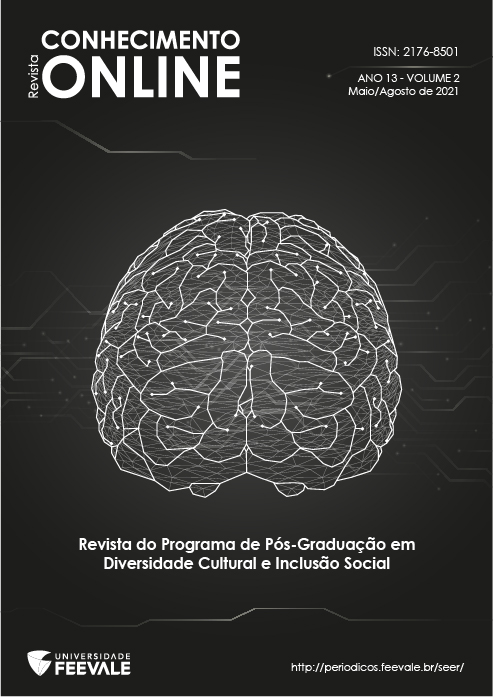EVALUATION OF A GAMIFIED LEARNING EXPERIENCE: ANALYSIS OF FACTORS THAT IMPACT THE EFFECTIVENESS OF A GAMIFIED EXPERIENCE
DOI:
https://doi.org/10.25112/rco.v2i0.2518Palavras-chave:
Learning, Reaction, Gamification, AcademicsResumo
Gamification has gone through a faddish cycle. It first gained prominence around 2012 and was quickly abandoned, as practitioners did not achieve the outcomes they expected. According to Gartner’s Hype Cycle, Gamification is at a point at which one might expect wide scale adoption. However, if history is not to repeat itself and results are to be achieved as theoretically predicted, a deeper understanding of the concept is essential. In the current study, the researchers attempt to evaluate a gamified learning experience. The participants were students of a Master in Business Administration course. The students were asked to participate in a gamified module and relevant data was collected, before and after the intervention. Based on a review of literature, the researchers identified the exogenous variables of Valence, Attitude towards use of Technology and Experience with Technology. The endogenous variables identified included Reaction and Learning. The findings of the study suggest that the gamified module resulted in increase in knowledge and that Attitude, Experience and Valence significantly predicted the Learner’s reaction to the experience. The findings of the study provide support to key theories in the area of gamification and insights for practitioners, on the factors to be considered before using a gamified learning intervention.
Referências
ANDRIAMIARISOA, R. Impact of gamification on student engagement in graduate medical studies (Doctoral dissertation, Walden University), 2018.
ARTHUR JR, W.; TUBRÉ, T.; PAUL, D. S.; EDENS, P. S. Teaching effectiveness: The relationship between reaction and learning evaluation criteria. Educational Psychology, 23(3), 275-285, 2003.
BEDWELL, W. L.; PAVLAS, D., HEYNE, K.; LAZZARA, E. H.; SALAS, E. (2012). Toward a taxonomy linking game attributes to learning: An empirical study. Simulation & Gaming, 43(6), 729-760.
BOURGONJON, J.; VALCKE, M.; SOETAERT, R.; SCHELLENS, T. Students’ perceptions about the use of video games in the classroom. Computers & Education, 54(4), 1145-1156, 2010.
BURKE, L. A.; HUTCHINS, H. M. Training transfer: An integrative literature review. Human resource development review, 6, 263-296, 2007.
CHOU, Y. K. Octalysis: Complete gamification framework, 2015.
CLANCY, H. “Looks like that whole ‘gamification’ thing is over”. Fortune, 6th June 2014. Available at: <http://fortune.com/2014/06/06/looks-like-that-whole-gamification-thing-is-over>. Access in: 31 Oct. 2019.
DECI, E. L.; RYAN, R. M. (2008). Self-determination theory: A macrotheory of human motivation, development, and health. Canadian psychology/Psychologie canadienne, 49(3), 182.
DELOITTE. Deloitte Global Human Capital Trends. 2019. Available at: <https://www2.deloitte.com/content/dam/insights/us/articles/5136_HC-Trends-2019/DI_HC-Trends-2019.pdf>.
DETERDING, S.; DIXON, D.; KHALED, R.; NACKE, L. From game design elements to gamefulness: defining “Gamification”. MindTrek ’11. Proceedings from the 15th International Academic MindTrek Conference: Envisioning Future Media Environments, 2011, pp. 9-15.
DIGNAN, A. Game frame: Using games as a strategy for success. Simon and Schuster. 2011.
GARRIS, R.; AHLERS, R.; DRISKELL, J. E. Games, motivation, and learning: A research and practice model. Simulation & gaming, 33(4), 441-467, 2002.
HAMARI, J.; KOIVISTO, J.; SARSA, H. Does gamification work? A literature review of empirical studies on gamification. In: 2014 47th Hawaii international conference on system sciences. Ieee, January, 2014, pp. 3025-3034.
KIRKPATRICK, D. Four-level training evaluation model. US Training and Development Journal, 13(8), 34-47, 1959.
KIRKPATRICK, D. L. Techniques for evaluating training programs. Journal of ASTD, 11, 1–13, 1959.
KOLB, D. A. Experiential Learning: Experience as the Source of Learning and Development. Englewood Cliffs, New Jersey: Prentice-Hall, 1984.
LANDERS, R. N. Developing a theory of gamified learning: Linking serious games and gamification of learning. Simulation & gaming, 45(6), 752-768, 2014.
LANDERS, R. N. Gamification misunderstood: how badly executed and rhetorical gamification obscures its transformative potential. Journal of Management inquiry, 28(2), 137-140, 2019.
LANDERS, R. N.; ARMSTRONG, M. B. Enhancing instructional outcomes with gamification: An empirical test of the Technology-Enhanced Training Effectiveness Model. Computers in human behavior, 71, 499-507, 2017.
MCCORMICK, T. Anthropology of an idea: gamification: why everybody, from corporate titans to terrorists, wants to make life more like a game. Foreign Policy, (201), 26-27, 2013.
MENON, R. Indian Training Industry - a sneak peek. 2019. Available at: <https://www.linkedin.com/pulse/indian-training-industry-sneak-peek-raghesh-menon/>. Access in: Access in: 31 Oct. 2020.
ONEILL, K.; ROBB, M.; KENNEDY, R.; BHATTACHARYA, A.; DOMINICI, N. R.; MURPHY, A. Mobile Technology, Just-in-Time Learning and Gamification: Innovative Strategies for a CAUTI Education Program. On-Line Journal of Nursing Informatics, 22(2), 2018.
PANETTA, K. Top trends in the gartner hype cycle for emerging technologies. 2017. Gartner, Stamford, US, 2017.
PWC. 20th CEO Survey. 2017. Available at: <https://www.pwc.com/gx/en/ceo-survey/2017/pwc-ceo-20th-survey-report-2017.pdf>. Access in: 20 Oct. 2020.
RIVERA, J.; VAN DER MEULEN, R. Gartner’s 2014 hype cycle for emerging technologies maps the journey to digital business. Connecticut, EEUU: Gartner Group, 2014.
SARGENT, R. Gamifying Self-Assessments in Online Corporate Training: Points and Levels. Doctoral dissertation, Northcentral University, 2017.
SEIDEL, T.; SHAVELSON, R. J. Teaching effectiveness research in the past decade: The role of theory and research design in disentangling meta-analysis results. Review of educational research, 77(4), 454-499, (2007.
SUH, A.; WAGNER, C. How gamification of an enterprise collaboration system increases knowledge contribution: an affordance approach. Journal of Knowledge Management, 2017.
TRIMBLETT, S. Gamification in nursing jurisprudence. 2016.
ZANIBONI, S.; FRACCAROLI, F.; TRUXILLO, D. M.; BERTOLINO, M.; BAUER, T. N. Training valence, instrumentality, and expectancy scale (T‐VIES‐it). Journal of Workplace Learning, 2011.
Downloads
Publicado
Como Citar
Edição
Seção
Licença
Copyright (c) 2021 Revista Conhecimento Online

Este trabalho está licenciado sob uma licença Creative Commons Attribution-NonCommercial-NoDerivatives 4.0 International License.
• Os autores mantêm os direitos autorais e concedem à revista o direito de primeira publicação com o trabalho licenciado sob a Licença Creative Commons - Attribution 4.0 International (CC BY 4.0).
• Os autores são estimulados a publicar e distribuir seu trabalho online (ex.: em repositórios institucionais ou na sua página pessoal), pois isso pode aumentar o impacto e a citação do trabalho publicado.


